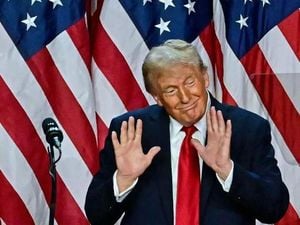On January 18, 2025, TikTok faced suspension after the U.S. Supreme Court upheld new legislation demanding its parent company, ByteDance, divest ownership due to national security concerns. The ruling underscored the U.S. government's increasing scrutiny over the popular social media app, which has soared to prominence among American users.
The law, titled the Protecting Americans from Foreign Adversary Controlled Applications Act, forbids TikTok's operation past January 19, 2025, if it remains owned by ByteDance. At the heart of this decision are worries about the Chinese government’s potential access to TikTok user data, raising alarms about privacy violations and national security risks. “This is about protecting American users’ personal information from foreign adversaries,” explained former U.S. President Donald Trump, who has long pressed for the app's ownership to shift to American hands.
Despite the app’s significant user base—over 170 million Americans—the Supreme Court’s decision reflects longstanding governmental concerns dating back to previous administrations. Both Trump and President Biden have highlighted the risks associated with data security, which TikTok has vehemently denied. They argue the app's formative roots within China might enable state surveillance of U.S. citizens and influence political opinions.
The societal impact of TikTok is echoed by voices within schools, where educators and students are divided. Becton teacher Joe Malyack expresses concern over the app’s effects on young minds. “The whole concept of ‘this video is boring in three seconds; let me skip’ is dangerous for the developmental psyche,” Malyack stated, linking it to deteriorated attention spans and addiction-like behaviors.
Contrasting these arguments, fellow student Ferdinando Morrone argues against the ban on grounds of free speech, stating, “The only reason it’s getting banned is due to claims of national security risks, which have been proven false.” He suggests the push to eliminate TikTok stems from lobbying by established tech giants, creating unjust competition.
Hunter Xie also voices support for TikTok, asserting it should not face outright bans but advocating for improved data practices, citing the need for economic opportunities and creative expression. “It should not be banned because it is a platform for free speech...,” Xie emphasized. Such sentiments mirror broader opinions among users who perceive TikTok as integral to both their social connectivity and economic viability.
Meanwhile, the app’s impact on creators has raised eyebrows among teachers like Leeann Ruiz, who noted, “Content creators may lose income if TikTok disappears, turning to other platforms without guaranteed success.” With the looming threat of losing the platform, creators are anxious about their future and financial stability.
The recent ruling has reignited discussions around First Amendment rights versus national security matters. The Supreme Court’s unanimous ruling highlighted the government's objective as justified, emphasizing the need to prevent potential data breaches. Critics argue, though, the thorough examination of the underlying issues was lacking, raising fundamental questions about the balance of protecting citizens and preserving free speech.
TikTok’s future now hangs precariously as the January 19 deadline approaches. Without significant developments, it will likely face operational barriers, confounding millions of users who have become accustomed to the platform as both a source of entertainment and community.
While users may continue to have access to TikTok for the moment, the uncertainty fosters growing tension within the tech and entertainment squabble against the backdrop of national security.
This tumultuous situation surrounding TikTok stands as the backdrop against which American governmental relations and digital freedoms are re-evaluated, compelling both lawmakers and users to ponder just how far the government can reach.



